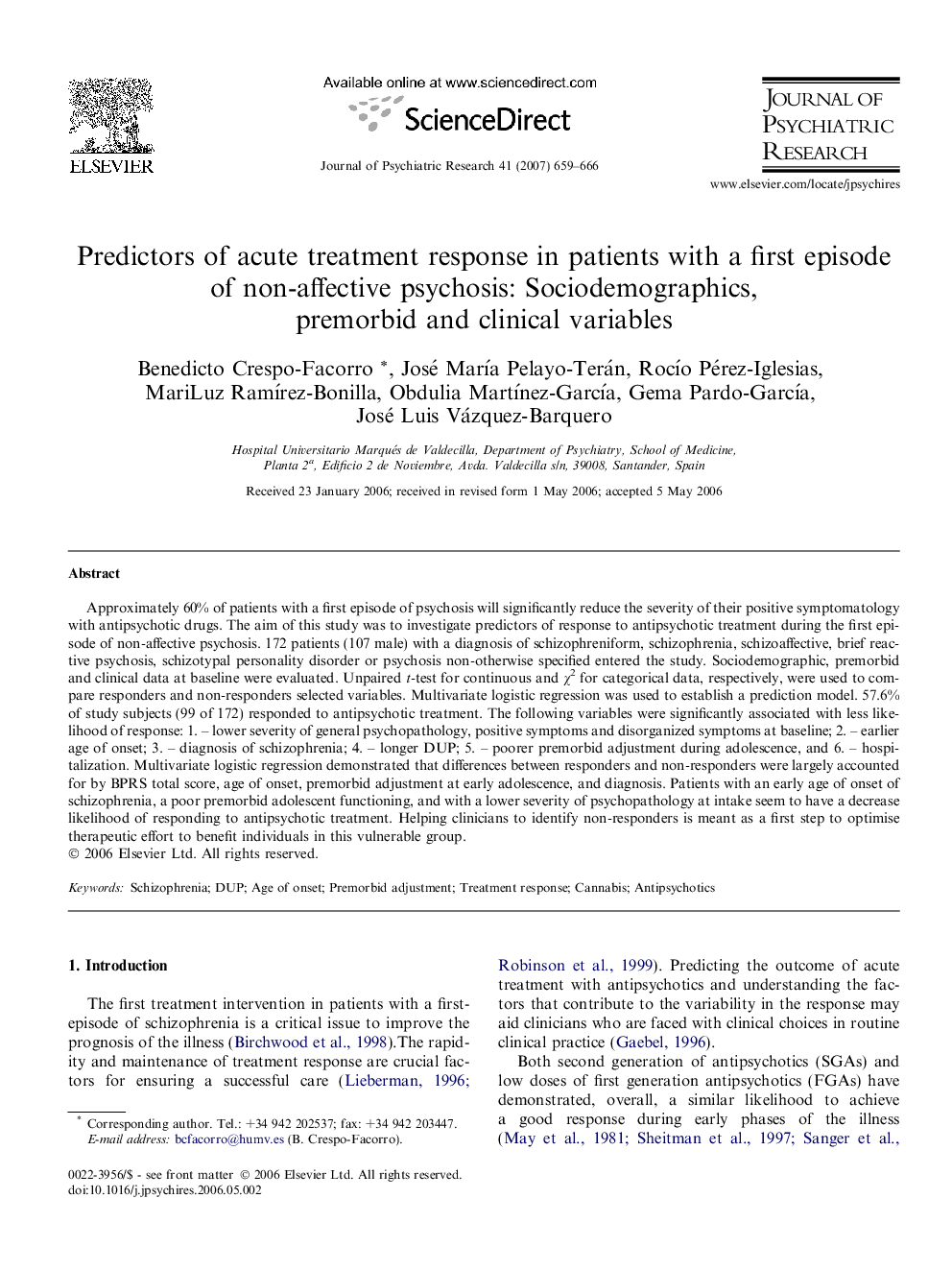| Article ID | Journal | Published Year | Pages | File Type |
|---|---|---|---|---|
| 328138 | Journal of Psychiatric Research | 2007 | 8 Pages |
Approximately 60% of patients with a first episode of psychosis will significantly reduce the severity of their positive symptomatology with antipsychotic drugs. The aim of this study was to investigate predictors of response to antipsychotic treatment during the first episode of non-affective psychosis. 172 patients (107 male) with a diagnosis of schizophreniform, schizophrenia, schizoaffective, brief reactive psychosis, schizotypal personality disorder or psychosis non-otherwise specified entered the study. Sociodemographic, premorbid and clinical data at baseline were evaluated. Unpaired t-test for continuous and χ2 for categorical data, respectively, were used to compare responders and non-responders selected variables. Multivariate logistic regression was used to establish a prediction model. 57.6% of study subjects (99 of 172) responded to antipsychotic treatment. The following variables were significantly associated with less likelihood of response: 1. – lower severity of general psychopathology, positive symptoms and disorganized symptoms at baseline; 2. – earlier age of onset; 3. – diagnosis of schizophrenia; 4. – longer DUP; 5. – poorer premorbid adjustment during adolescence, and 6. – hospitalization. Multivariate logistic regression demonstrated that differences between responders and non-responders were largely accounted for by BPRS total score, age of onset, premorbid adjustment at early adolescence, and diagnosis. Patients with an early age of onset of schizophrenia, a poor premorbid adolescent functioning, and with a lower severity of psychopathology at intake seem to have a decrease likelihood of responding to antipsychotic treatment. Helping clinicians to identify non-responders is meant as a first step to optimise therapeutic effort to benefit individuals in this vulnerable group.
